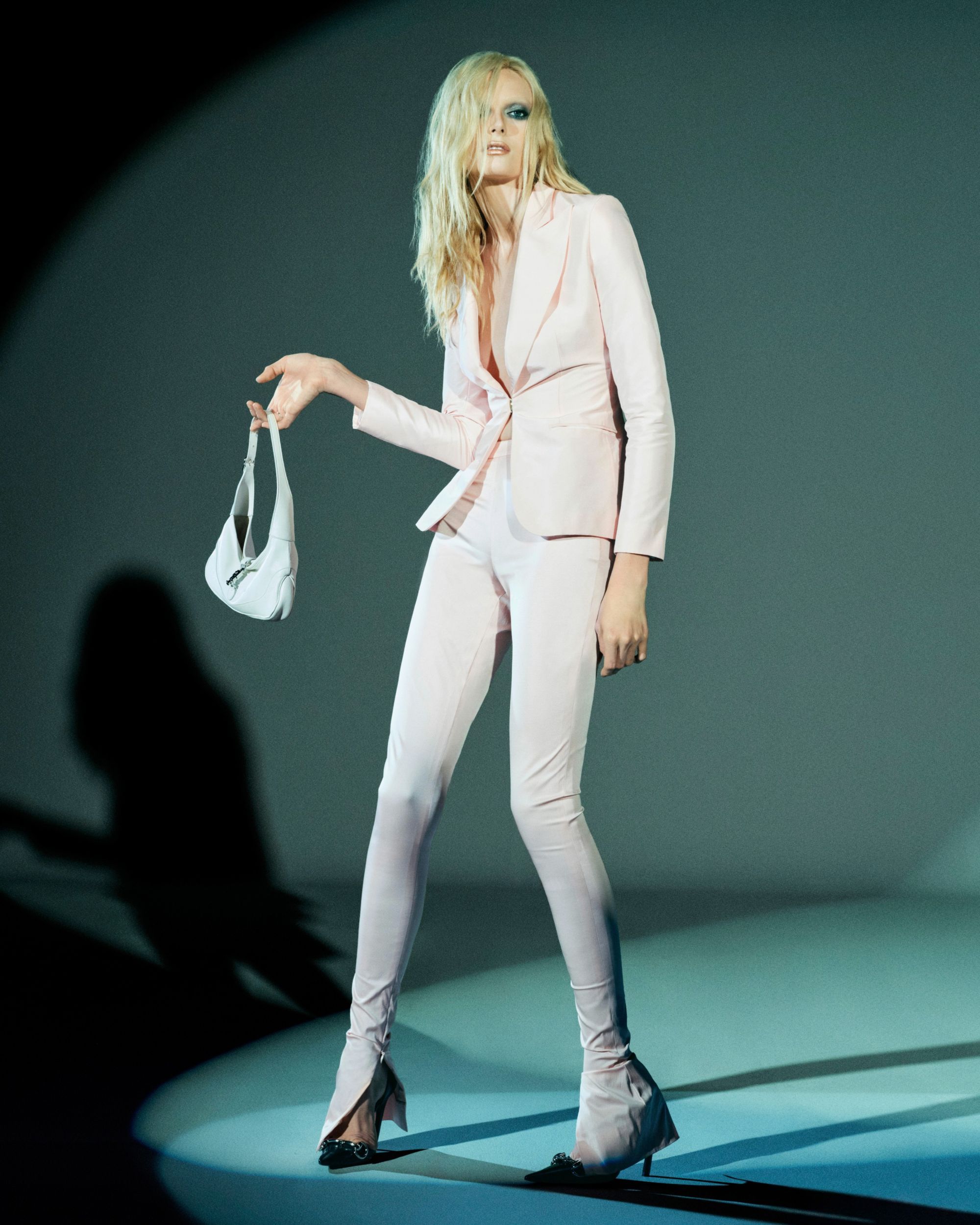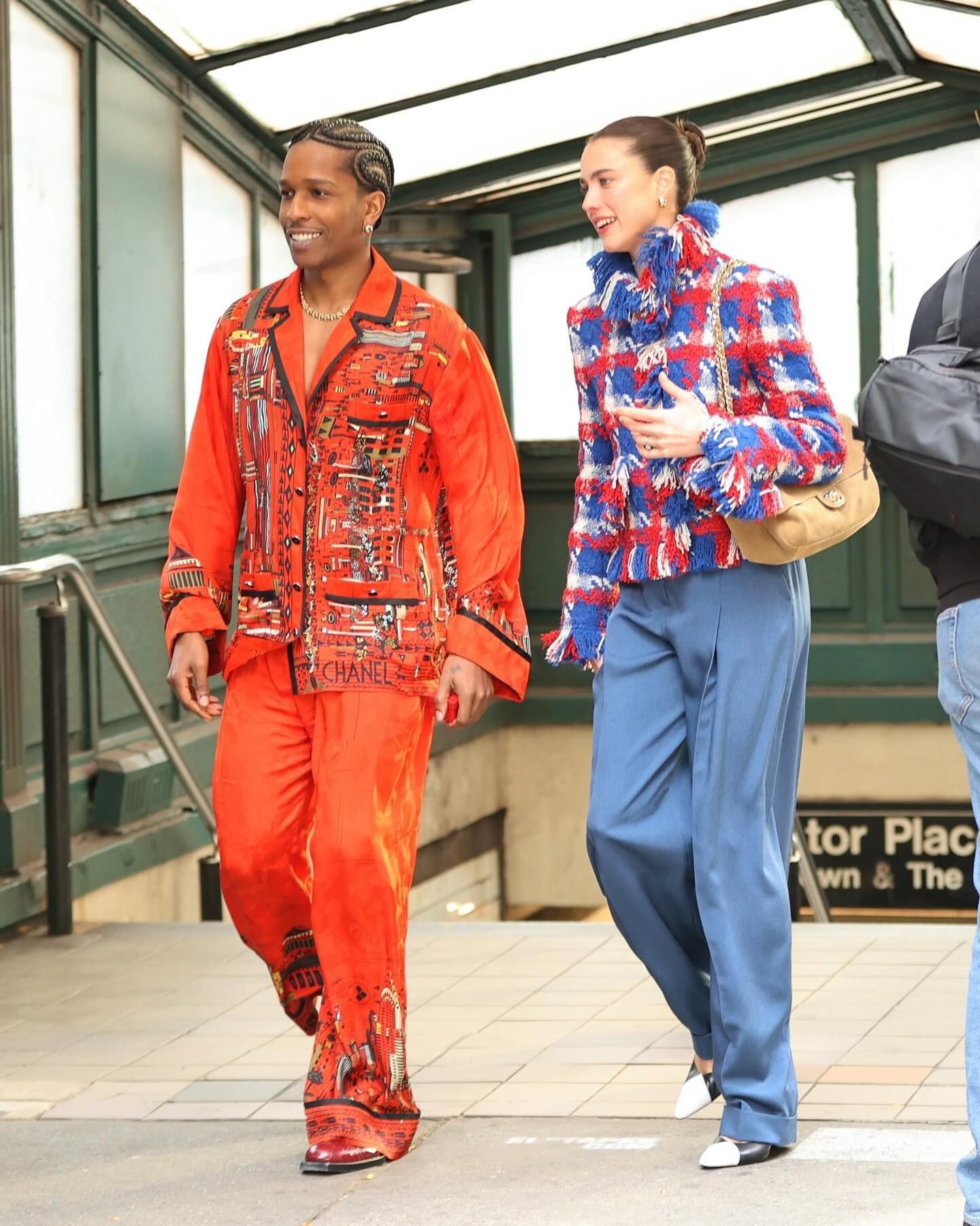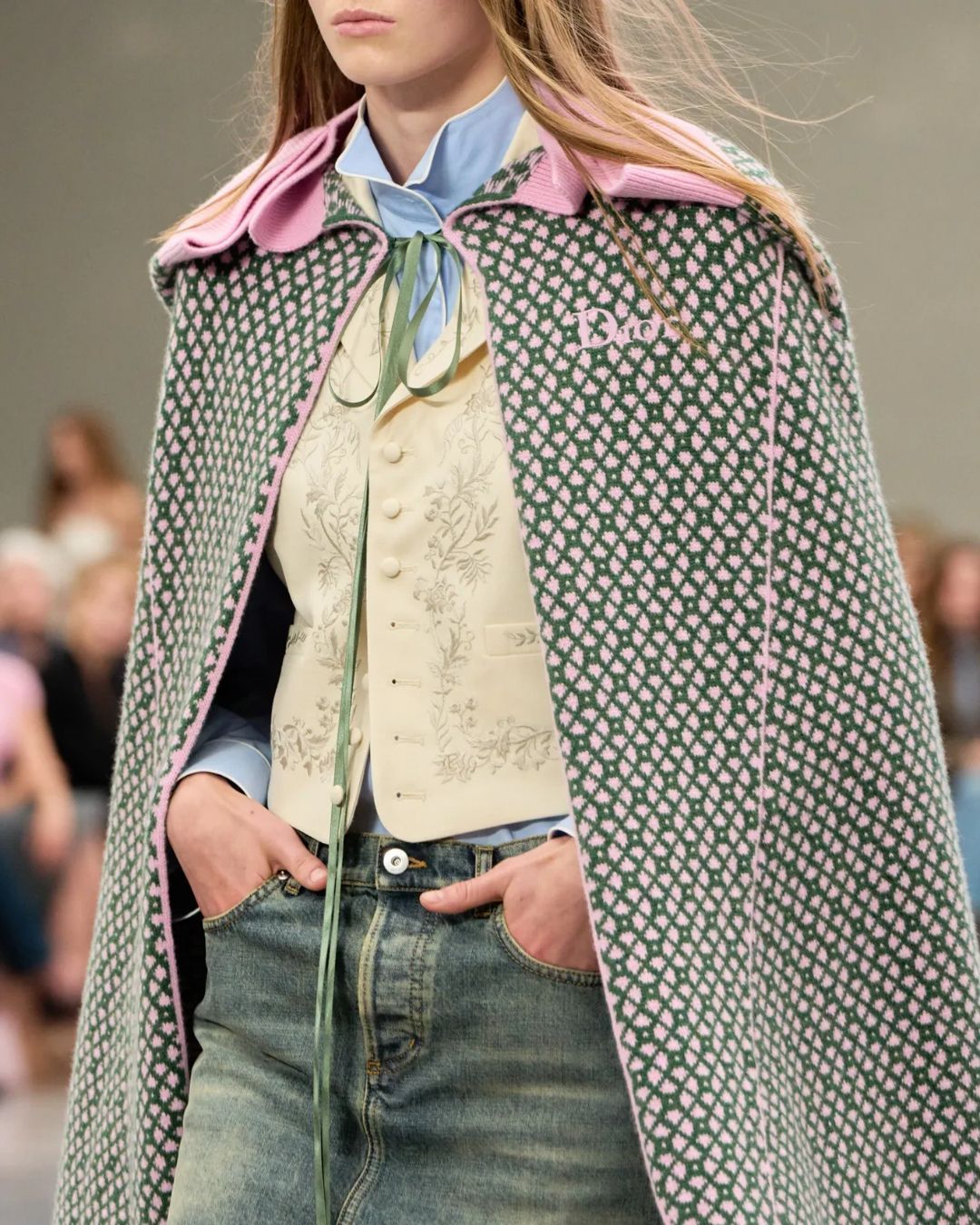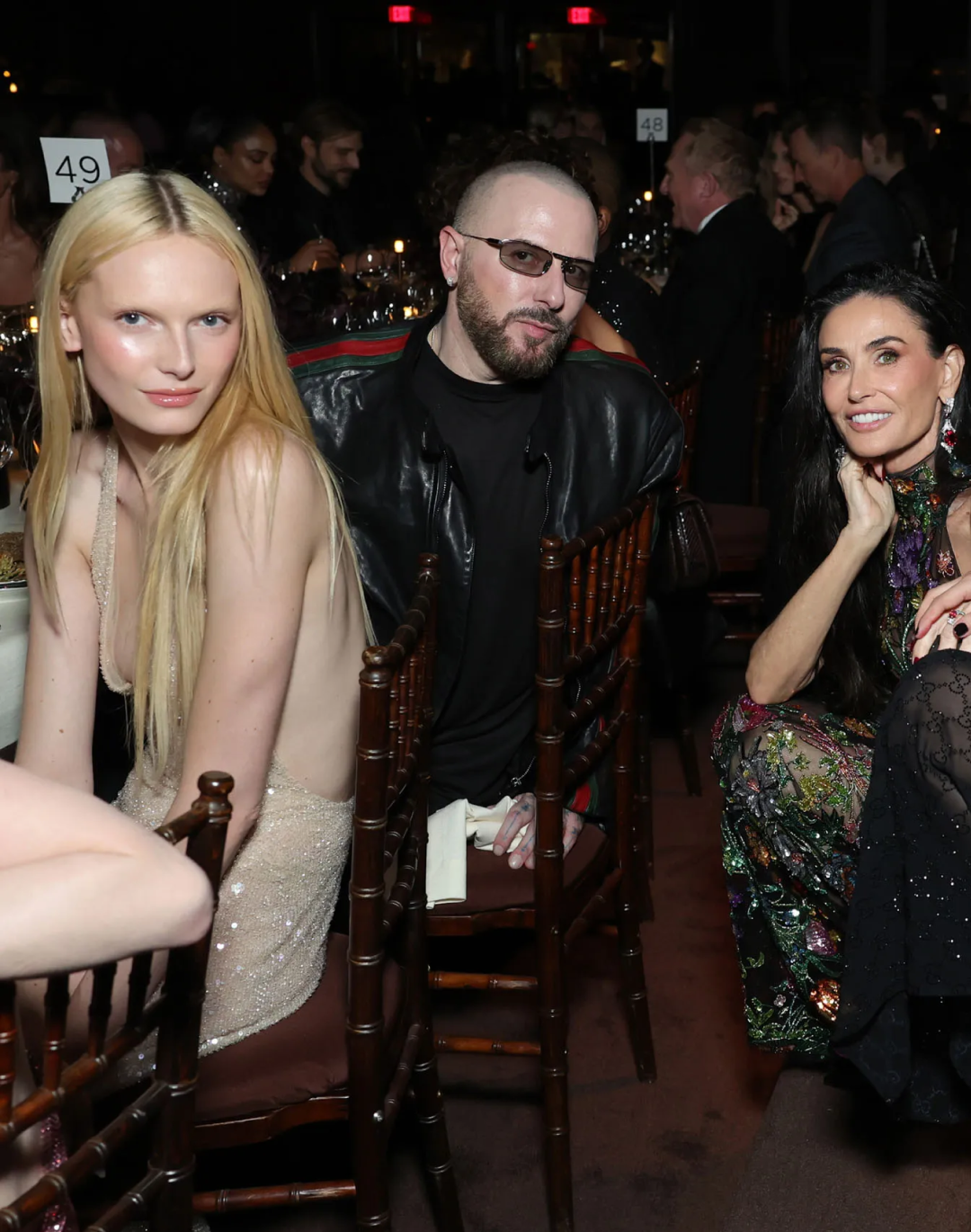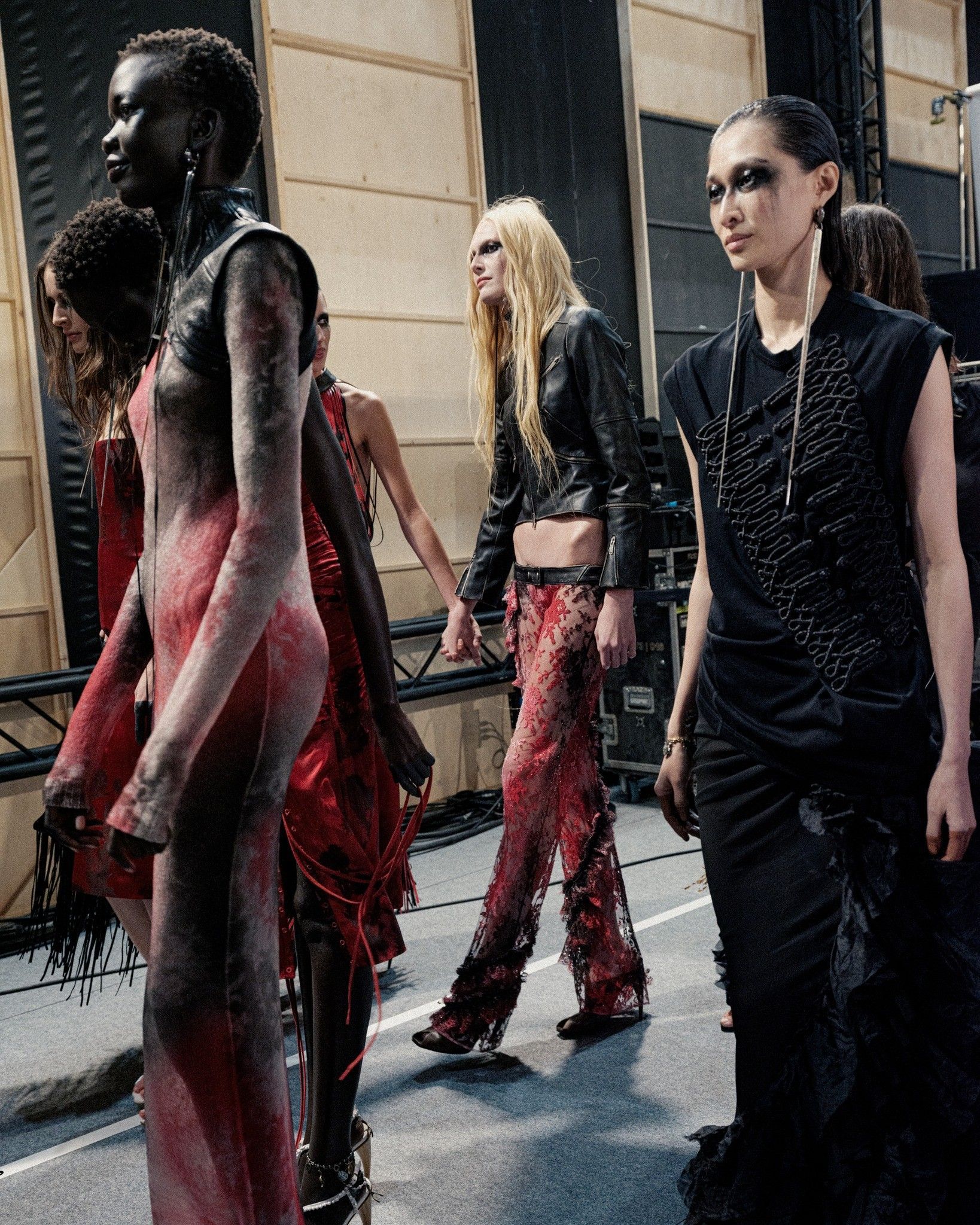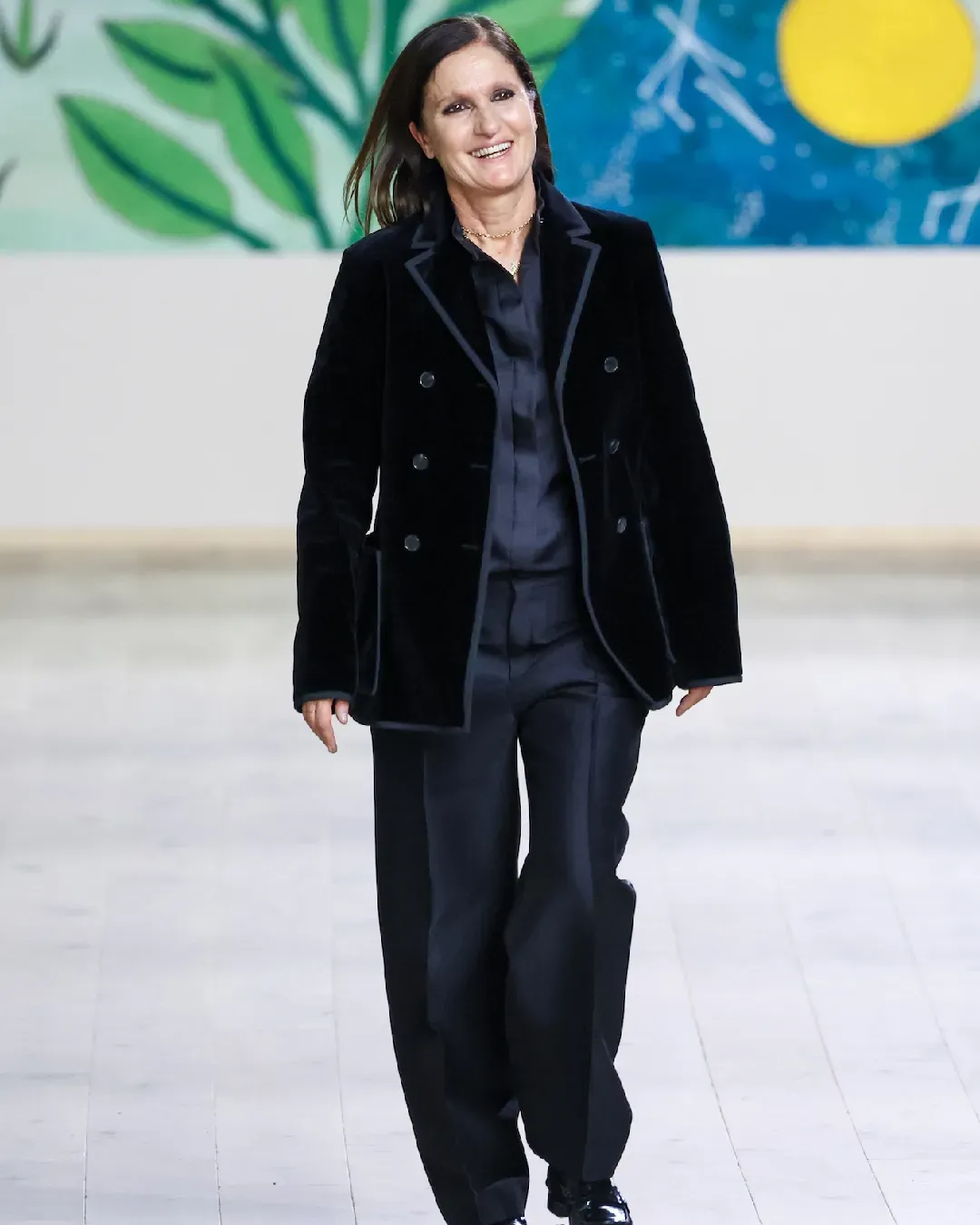
Style and fashion according to David Lynch How Blue Velvet and Twin Peaks influenced some of the most memorable fashion shows of recent years
In how many ways can an artist be defined? Declining its formation, its artistic intentions, the path to arrive at a certain type of vision. Whatever the art form one chooses to profess, there are many elements that show its evolution, the generative incipit that has determined such a vision of intentions, not necessarily attributable solely to one's own artistic creed. Very often, when analysing the evolutionary and artistic path of a filmmaker, one tends erroneously not to consider, as happens for example in music, how much the aesthetics and the use of one's own clothing has conditioned the periods, themes, and externalization of what the artist actually wanted to show with respect to what his imagination, his own life path, was communicating to him at that time. Just as an original soundtrack has an impact in emphasising and showing the non-verbal language that a director chooses to reveal to his audience, an excursus that is even more interior than the narration itself, so too fashion with its many facets shows new social, artistic visions, inherent in the generalist culture, so much so as to become the perfect synthesis of its artistic flair. If in contemporary filmmakers it is an element that we find again and again, a forma mentis given by an ever-increasing cohabitation of arts in which music, cinema and fashion merge into an aesthetic and sensorial unicum, the father of this fusion is undoubtedly David Lynch in the manifestation of an American dream in which terror and caducity of contemporary society were delineated through a unique and controversial style.
Just hours after the passing of the most influential film genius of our time, we remember David Lynch by tracing his style over the years. From his personal wardrobe to the colors of Blue Velvet, from Twin Peaks influences in collections to Lynch's signature fashion collaborations.
David Lynch's personal style
Come raccontava Chris Wallace su Esquire, il regista settantenne si veste con la modestia di un operaio della sua nativa Missoula. «Le proporzioni dei suoi polsini a botte (troppo lunghi) e la caduta del suo cappotto alla Miles Davis (troppo largo per gli standard odierni tagliati corti) sono una perfetta raffigurazione di stile rurale americano. Il look è severo e caratteristico. È un'uniforme, e il fatto che Lynch la adotti è una testimonianza vivente della massima di Flaubert secondo cui un artista dovrebbe essere regolare e ordinato nella vita in modo da poter essere violento e originale nel suo lavoro». Forse è per questo che il suo aspetto da bottone alla gola sia in perfetta antitesi con i suoi film così selvaggiamente sfrenati.
The theory of colours in Blue Velvet
The panning shot that begins Blue Velvet with the bright colours of the white picket fence, the artificial blue sky and the fiery red of a freshly picked rose, perfectly portrayed what for David Lynch represented America in the 1990s, outwardly perfect but internally dark and menacing: and this juxtaposition, as well as the musical choice of reinterpreting Bobby Vinton's classic, were a perfect source of inspiration for multiple stylists and art directors, certainly including Raf Simons and Rei Kawakubo, who were best able to draw on its many facets.
In their different ways of understanding Lynch's work, they made use of the different function of sound that the director manifests between silence and compositional introspection, which on the one hand saw the exaltation of the sound aspect for Comme des Garçons in SS16, entitled Blue Witches, in depicting through the imagery of Blue Velvet the conformation of women misunderstood and shunned by society - not unlike the character of Dorothy Vallens, played by Isabella Rossellini - and the restless silence that Raf Simons conceived for his men's FW 2019 show in Paris, prompting the viewer to identify with the unknown subterranean that the blue velvet curtain wants to show.
The costumes in Twin Peaks
Each of David Lynch's films is studded with multiple scenic elements that manifest its metaphorical purpose, such as the malignant plasticity of Los Angeles and the world of Hollywood in Mulholland Drive, enhanced by Amy Stofsky's costumes, or the 'romantic' depiction of the road trip in Wild at Heart in studs and python jackets, but it is the fashion of Twin Peaks that has played and still plays a clear role in American popular culture and beyond. As analysed by Lecturer Catherine Spooner in Return to Twin Peaks: New Approaches to Materiality, Thoery and Genre on Television, the rebel, the cheerleader, the prom queen, the FBI agent or the eccentric hippy all have a recognisable look that helps define their role within the community. Even the anonymous Scottish fishing outfit worn by Pete Martell indicates his lack of an identifiable role.
There is often something slightly strange and dark about Patricia Norris's costumes, as well as the apparent tranquility of the small town of Twin Peaks, where each element becomes an explanatory function of the individual clues left behind to discover who killed Laura Palmer. «The look they created was deliberately timeless, indicating the universality of small-town American life, and highly specific, conveying the particularity of David Lynch's vision. The style of Twin Peaks is at once highly recognisable and intensely strange, mapping the co-ordinates of what we think we know, but at the same time disrupting them .The recognisable archetypes should reassure us - the biker, the truck driver, the waitress - but ultimately disconcert. And the costumes that have had the greatest influence on contemporary fashion are the strangest, such as the mysterious Mrs. Stump, whose sloppy layered tweeds and oversized glasses seem to assimilate perfectly with Prada's style.»
Such iconicity has become a fundamental narrative element for multiple shows among which the ever eclectic work of Raf Simons certainly stands out, who for his 2016 FW men's collection, Nightmares and Dreams, dedicated to Lynch's work a true attestation of unconditional esteem not only through the conformation of the clothes that presented the American aesthetic stylistic features that costume designer Patricia Norris had conceived for the series, «destroying the standards and ideals imposed on young people in small-town American societies», but also in the construction of the set in which the models walked in a labyrinth of twisting and turning wooden walls reminiscent of the entrance to the Black Lodge, where only the voice of Angelo Badalamenti, the director's fetish composer, guided the flow, explaining the creative process that had led to the composition of Laura Palmer's theme, without separating Lynch's directorial vision from his sonic ideal.
Lynch's collaborations with the world of fashion
If the fashion world has made use of his aesthetics, the Missoula-born director has been able to enter into them gradually, contributing to the conception of some campaigns that have become iconic over time. The direction of the oneiric short film Lady Blue Shanghai, centred on the iconoclastic imagery of Dior in which the protagonist Marion Cotillard was lost in the Shanghai night, in perpetual conflict between dream and reality, as well as the commercial for Gucci in 2008, without forgetting the artistic direction of the FW Kenzo fashion show in 2014, for which he was the creator of both the set and the soundtrack. Despite the fact that his aesthetic style may seem sober, almost closed in his rural American vision, his directing and sound ideas have always been brazen, multimodal, so much so that they fit perfectly with what the fashion industry is now perfectly externalizing through its collections and its mission, in an increasingly interconnected artistic union.






































































